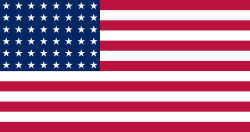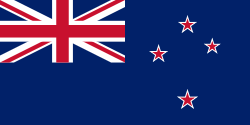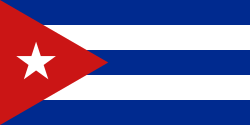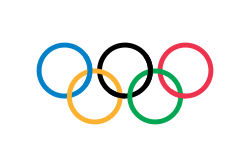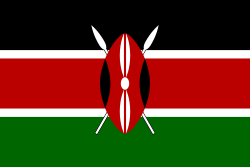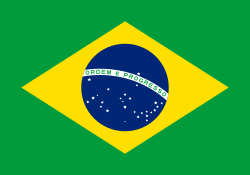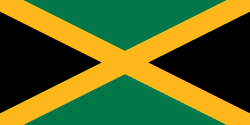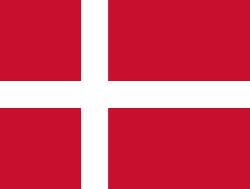Paul Ereng
| Paul Ereng | |
|---|---|
 | |
| Narození | 22. srpna 1967 (55 let) Kitale |
| Alma mater | University of Virginia |
| Povolání | běžec na středně dlouhé tratě |
| Některá data mohou pocházet z datové položky. | |
| Přehled medailí | ||
|---|---|---|
| zlato | LOH 1988 | běh na 800 m |
| Halové MS v atletice | ||
| zlato | HMS 1989 | běh na 800 m |
| zlato | HMS 1991 | běh na 800 m |
Paul Ereng (* 22. srpna 1967 Kitale) je keňský atlet, běžec na střední tratě, olympijský vítěz v běhu na 800 metrů z roku 1988.
V mládí se specializoval na 400 metrů, s přechodem na vysokou školu se jeho hlavní disciplínou stal běh na 800 metrů. Na Letních olympijských hrách 1988 v Soulu se stal nečekaným vítězem na této trati, když porazil obhájce titulu z Los Angeles, Brazilce Cruze. Byl rovněž členem keňské štafety v běhu na 4 × 400 metrů, která skončila ve finále osmá.
V roce 1989 zvítězil na halovém mistrovství světa v běhu na 800 metrů v novém světovém rekordu 1:44,84. Titul obhájil v roce 1991 na světovém šampionátu v Seville. Na mistrovství světa v Tokiu v témže roce doběhl ve finále běhu na 800 metrů čtvrtý. Olympijské vítězství se mu nepodařilo obhájit. Na Letních olympijských hrách 1992 v Barceloně vypadl v semifinále.
Po skončení aktivní sportovní dráhy se stal trenérem v USA.
Externí odkazy
 Obrázky, zvuky či videa k tématu Paul Ereng na Wikimedia Commons
Obrázky, zvuky či videa k tématu Paul Ereng na Wikimedia Commons - Paul Ereng na stránkách Světové atletiky (anglicky)
- Paul Ereng v databázi Olympedia (anglicky)
Média použitá na této stránce
Olympic Rings without "rims" (gaps between the rings), As used, eg. in the logos of the 2008 and 2016 Olympics. The colour scheme applied here was specified in 2023 guidelines.
Olympic Rings without "rims" (gaps between the rings), As used, eg. in the logos of the 2008 and 2016 Olympics. The colour scheme applied here was specified in 2023 guidelines.
US Flag with 45 stars. In use 4 July 1896–3 July 1908. Created by jacobolus using Adobe Illustrator, and released into the public domain. This flag was used during the Spanish-American War.
US Flag with 45 stars. In use 4 July 1896–3 July 1908. Created by jacobolus using Adobe Illustrator, and released into the public domain. This flag was used during the Spanish-American War.
US Flag with 46 stars. In use 4 July 1908–3 July 1912. Created by jacobolus using Adobe Illustrator, and released into the public domain.
Other version: Image:US 46 Star Flag.svgUS Flag with 46 stars. In use 4 July 1908–3 July 1912. Created by jacobolus using Adobe Illustrator, and released into the public domain.
Other version: Image:US 46 Star Flag.svgUS Flag with 48 stars. In use for 47 years from July 4, 1912, to July 3, 1959.
Olympijská vlajka
The flag of Brazil from 1968 to 1992 with 23 stars.
Flag of Jamaica. “The sunshine, the land is green, and the people are strong and bold” is the symbolism of the colours of the flag. GOLD represents the natural wealth and beauty of sunlight; GREEN represents hope and agricultural resources; BLACK represents the strength and creativity of the people. The original symbolism, however, was "Hardships there are, but the land is green, and the sun shineth", where BLACK represented the hardships being faced.
Used color: National flag | South African Government and Pantone Color Picker
| zelená | rendered as RGB 0 119 73 | Pantone 3415 C |
| žlutá | rendered as RGB 255 184 28 | Pantone 1235 C |
| červená | rendered as RGB 224 60 49 | Pantone 179 C |
| modrá | rendered as RGB 0 20 137 | Pantone Reflex Blue C |
| bílá | rendered as RGB 255 255 255 | |
| černá | rendered as RGB 0 0 0 |
Vlajka Etiopie
Paul Ereng
The flag of Brazil from 1968 to 1992 with 23 stars.




